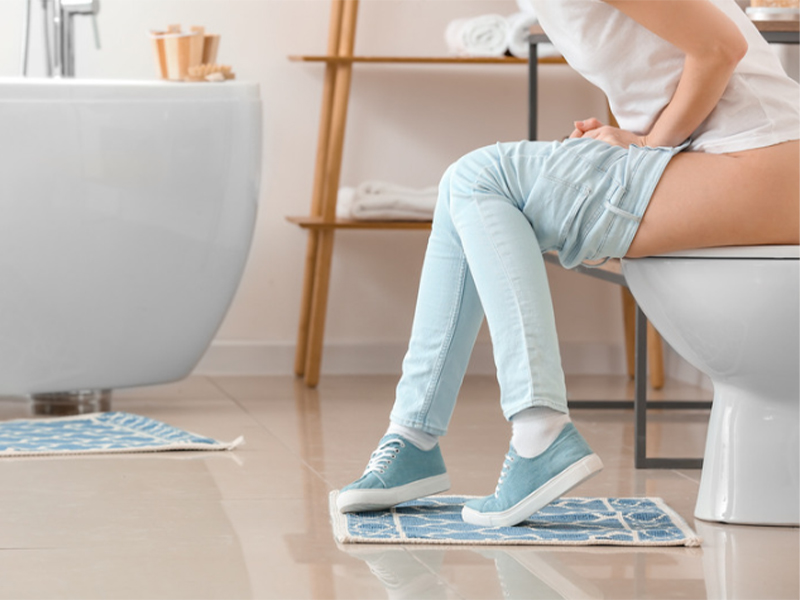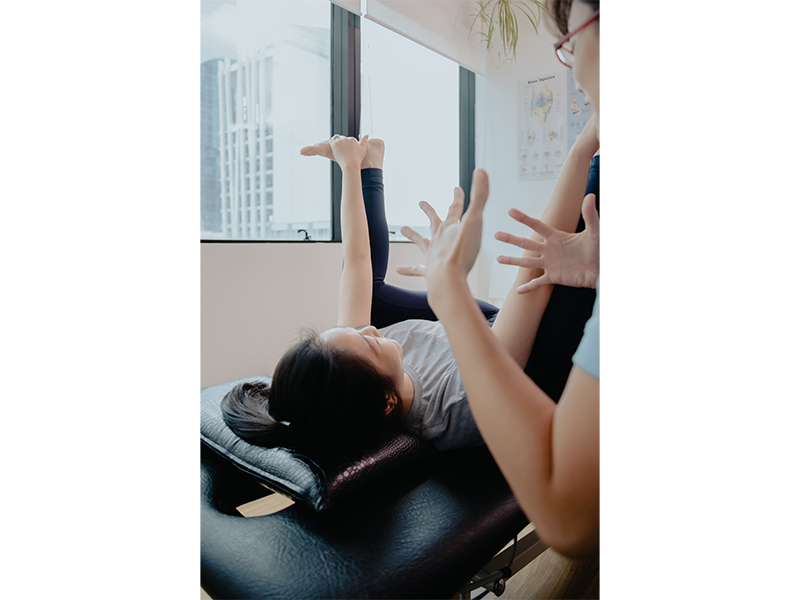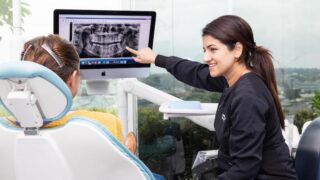Constipation and haemorrhoids are common, but they’re often taboo topics of conversation. Here, physiotherapist YIP WAN HUI explains how she uses physio for constipation relief. She advises that keeping regular plays a big part in any haemorrhoids treatment.
What are the common causes of constipation?
Dehydration, sedentary lifestyle, inappropriate fibre intake and tight or poorly coordinated pelvic floor muscles that obstruct the movement of stools are the most common causes. Hormonal changes in pregnancy and menopause can also result in gut slow down and changes in gut microbiome. For some, these changes can cause constipation and pain.
Does pelvic floor dysfunction contribute to constipation and what are the symptoms?
Pelvic floor muscles work closely with the anal sphincter and other muscles within the pelvis, abdomen and back to support the bowel for effective movement and help to control the anal opening. Dysfunction ranging from laxity and weakness to inability to relax with defecation can contribute to constipation. It affects the ability of the gut to move digested food and prevents effective relaxation of the anal canal for smooth evacuation.
Consistent symptoms (at least one in every four motions) such as round pellet-like stools that require effort to push out, feeling obstruction or pain with defecation should prompt medical attention.
If you’ve been prescribed laxatives and still find it hard to achieve the sensation of complete emptying or find yourself unable to reduce laxatives even after months of usage, an internal examination by a trained pelvic health physiotherapist is advised.
What role do haemorrhoids play in causing pain during bowel movements?
There are special blood vessels in loose connective tissue pouches arranged in a circle right above the anal opening. These pouches are known as haemorrhoids – they’re naturally occurring and can help with anal control.
If these pouches are irritated through excessive rubbing against hard stools or straining for long periods due to the inability to relax the anal opening, the inflammation and high pressure can cause them to swell. Swollen haemorrhoids can cause pain and bleeding, especially if they are pushed out with the stools and get trapped on the outside.
How does someone know it’s time to seek professional haemorrhoids treatment?
If you experience any difficulty, pain or bleeding with passing motion, seek medical attention and see a pelvic health physiotherapist. Delaying can result in lengthier treatments and sometimes in chronic pain and/or medical procedures.
Sudden and lasting changes to your bowel routine are also a red flag. These can include stools becoming narrow and thin, stools that are always soft and diarrhoea like, or swinging between hard pellets and diarrhoea-like stools.
What haemorrhoids treatment do you offer for managing pain and constipation relief?
An individualised assessment is done to identify specific contributing factors and determine appropriate haemorrhoids treatment. These can include retraining to improve the ability to relax with passing motion. We do this with visual feedback via real-time ultrasound scans and/or with biofeedback via electromyography. These are pain-free and non-invasive ways to accurately identify if the muscles are relaxing with attempted defecation.
A combination of exercise therapy and identified gut stimulant (like coffee or oat porridge) is used to establish a regular and convenient defecating schedule. A schedule is important for keeping regular as it increases the ease of defecation and reduces frequency of pain and bleeding.
We give advice on lifestyle modification, including appropriate exercise, hydration, and fibre intake. This helps achieve a stool form that is easier to pass and causes less irritation to haemorrhoids. For complex cases, we refer patients to dieticians for more specific advice.
Wan Hui is a senior physio therapist at City Osteopathy & Physiotherapy. There are clinics at Novena, the CBD, Bukit Timah, River Valley, Woodleigh and the East Coast. cityosteophysio.com
Like this article about keeping regular, constipation relief and haemorrhoids treatment? Read more informative articles in our health and fitness section.
This article first appeared in the October 2024 edition of Expat Living. You can purchase the latest issue or subscribe, so you never miss a copy!
To make the most of living in Singapore, read our latest City Guide here for free!
Don't miss out on the latest events, news and
competitions by signing up to our newsletter!
By signing up, you'll receive our weekly newsletter and offers which you can update or unsubscribe to anytime.






